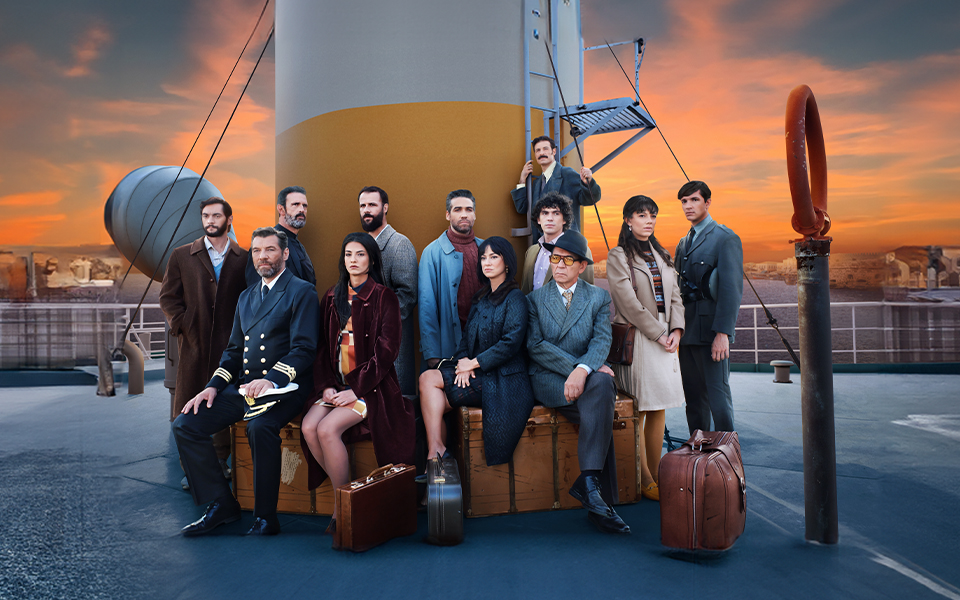Few series open with quite such immediacy as To Navayio (The Shipwreck), which premiered a few days ago on Alpha Cyprus. The first images were striking, restless Aegean waters under grey skies, the camera sweeping low across waves that seemed almost alive. Within moments, metal tore apart and human cries rose above the roar of the sea, capturing the terror of the sinking of the passenger ship Phoenix.
Based on the novel by Spyros Petroulakis, To Navayio’s narrative is set in the 1960s, against the gathering shadow of dictatorship in Greece. Yet this is far more than a political drama. The shipwreck becomes a catalyst, scattering lives in unexpected directions and binding strangers through shared trauma and hidden truths.
Among the most affecting storylines is that of Lina, found unconscious after the disaster. In hospital, monitors beep steadily as a close-up reveals her shock on waking to secrets that upend her world. It’s a moment filmed with restraint, allowing emotion to speak through silence rather than melodrama.
The series draws strength from its ensemble cast. Makis, a university student secretly resisting the creeping regime, finds himself drawn to Lina during the voyage. Yet the past intrudes quickly, his mother Maria, played with measured intensity by Maria Zorba, holds secrets of her own, while his father Vlassis grapples with debts and shame after borrowing from a loan shark.
There’s potent emotional weight when Stella discovers Kyriakos was on the ill-fated ship. A trembling hand, a phone falling from her grasp, and a breathless dash to the hospital all unfold with carefully judged pacing.
Beyond the immediate aftermath of the wreck, To Navayio widens its lens. On Kythera island, Irene and Apostolos dream of selling a perfume formula to France but find themselves trapped by geography and circumstance. In Crete, a simmering feud between Petros and Yiannis hints at violence to come, adding another layer of tension.
Visually, the production impresses. Director Yannis Charitides uses fast cuts during the chaos aboard the Phoenix, contrasted with sweeping, sun-drenched shots of Greek landscapes. Composer Giorgos Kokouvas weaves traditional folk songs into the score, evoking both nostalgia and sorrow without overwhelming the scenes.
Yet the first episode occasionally feels burdened by the weight of multiple plotlines and characters. While this breadth gives the series its ambitious scope, it may also demand patience from viewers waiting for individual threads to deepen.
Nonetheless, To Navayio leaves a strong first impression. It’s a drama that combines human fragility, historical context and visual craftsmanship.






Click here to change your cookie preferences